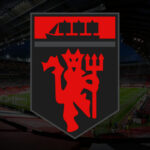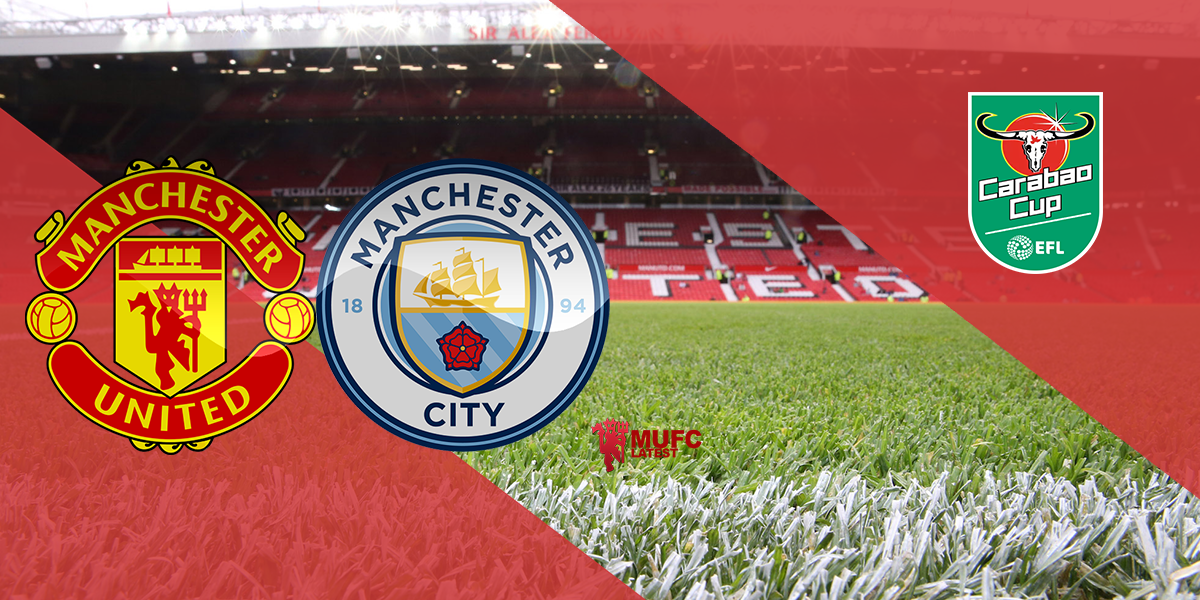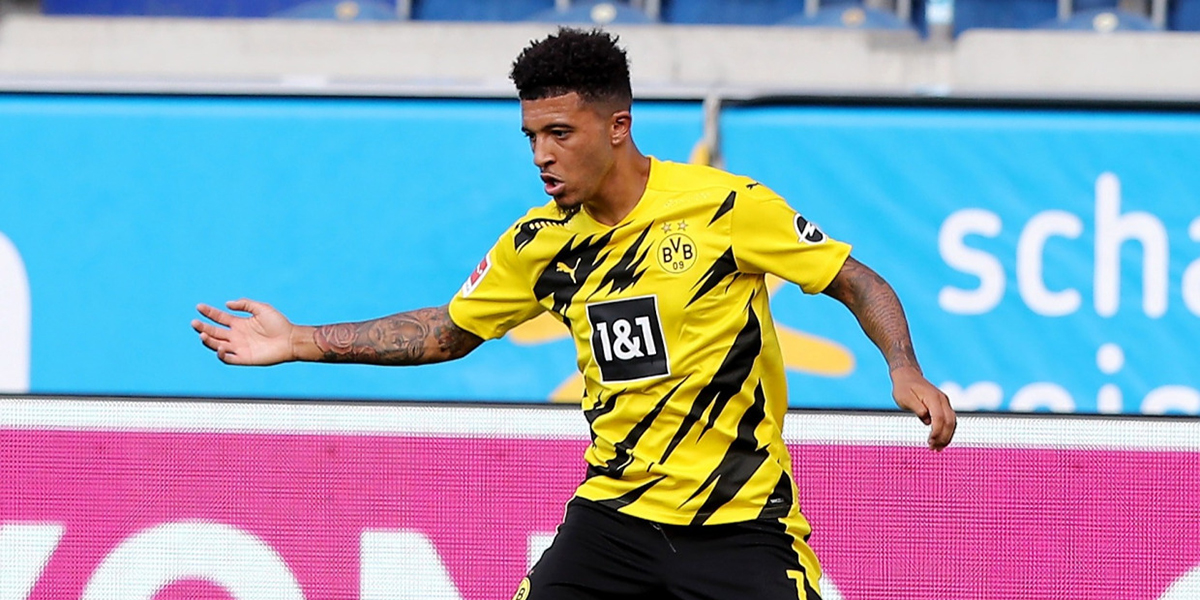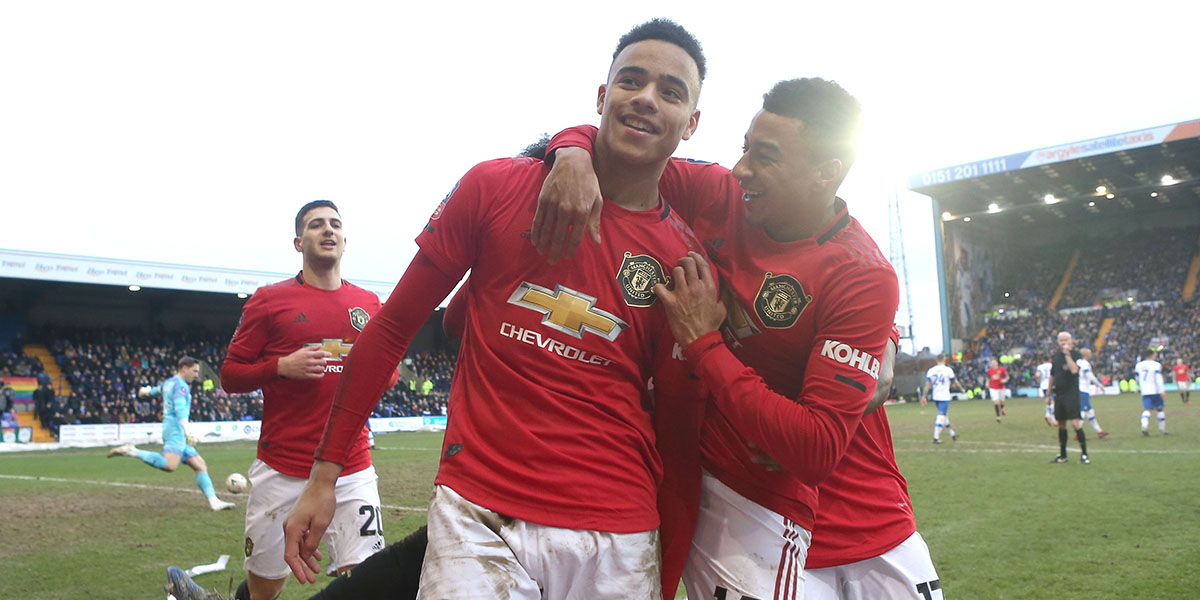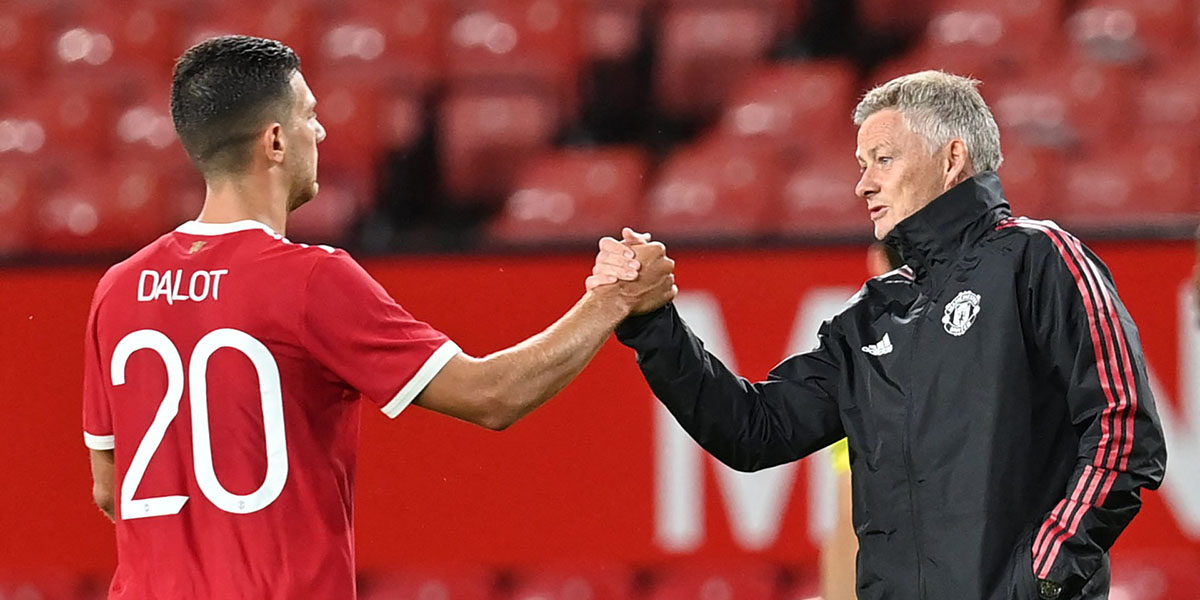
After looking like he was on his way out of the club, Diogo Dalot now appears to be an important part of Manchester United’s larger squad. He could be set for a big season ahead and has the chance to kickstart his United career.
The Portuguese right-back was signed by former United manager, Jose Mourinho, from FC Porto in the 2018 summer transfer window. Arriving for a fee of £19.8 million, Mourinho was impressed by Dalot’s experience in the Porto academy, physicality, technical ability and attacking nature and envisaged him as a long-term successor to Antonio Valencia. His ability to play both right-back and left-back also made him an attractive prospect. Dalot was a relatively unknown quantity outside of the Portuguese Primeira Liga and had only made his debut in that league in February 2018.
Mourinho showed great faith and belief in the young defender’s ability and potential by bringing him to United, clearly trusting his scouting network. There was a sense that Mourinho, as a Portuguese manager, had a good knowledge of the league and believed he had uncovered one of Europe’s hidden gems.
In December 2018, Mourinho was sacked by Manchester United and replaced by Ole Gunnar Solskjaer, originally as interim manager. Initially, it was unclear if Solskjær regarded Dalot as highly as his predecessor and fans waited to see whether the Norwegian would give the young full-back playing time. At the start of his tenure, Solskjær primarily used Dalot as a right-winger, due to injuries in the squad. Thanks to his strong crossing ability, signature step-over and relentless drive to get forward, Dalot did not look lost in this position. In a season highlight, Dalot came on as substitute in United’s Champions League round of 16 second leg against Paris Saint-Germain.
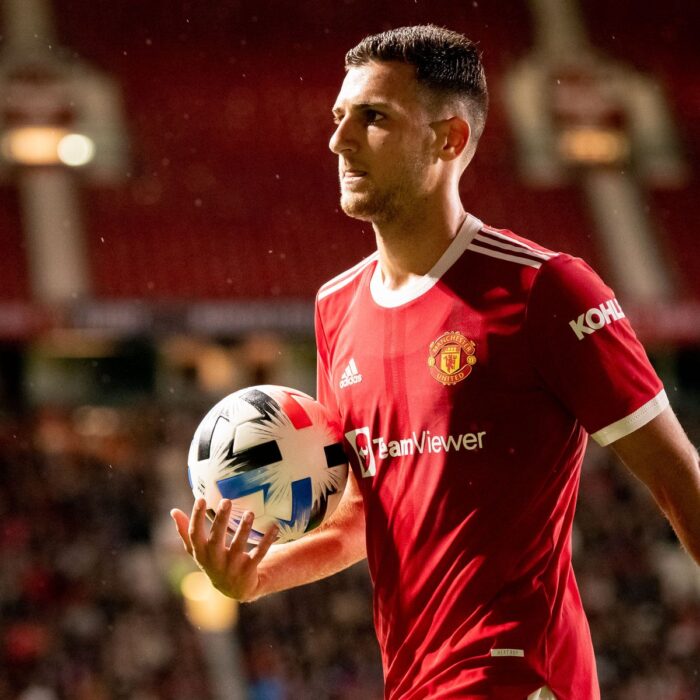
Brought on in the 36th minute to replace the injured Eric Bailly, Dalot put in a good performance in the biggest game of his career to that point. Memorably, a late, speculative shot from the young right-back struck the hand of PSG defender, Presnel Kimpembe, leading to Marcus Rashford’s injury-time penalty that won the tie for United. That match provided an iconic European night for United fans and is considered the result that led to Solskjaer’s permanent appointment as manager, all of which would not have been possible without Dalot. After players began to return from injury, Dalot saw his gametime decrease over the remainder of the season and he finished his first United campaign with 25 appearances.
In the summer of 2019, now as permanent manager, Solskjaer began assembling his squad for the upcoming season, filled with his own choice of players. In addition to new signings Harry Maguire and Dan James, Solskjær acquired young, English right-back, Aaron-Wan Bissaka from Crystal Palace. Wan-Bissaka proved to be a consistent performer, rarely injured and a favourite of Solskjaer, meaning Dalot was restricted to his role as back-up right back. The highlight of Dalot’s season came when he scored his first goal for the club, in a 6-0 victory over Tranmere Rovers in the FA Cup. Overall, Dalot’s chances were limited and he made just 11 appearances in the 2019/20 season.
That summer, Diogo Dalot joined AC Milan for the 2020/21 campaign. The acquisition of Alex Telles at left-back and the development of Brandon Williams at right-back, as well as first-choice full-backs Luke Shaw and Aaron Wan-Bissaka continuing to perform to a high level, meant that there was no clear path to the first team for Dalot, who was now third-choice in each full-back position. In a search for more minutes and gametime, Dalot ventured on loan to Serie A with Italian giants AC Milan.
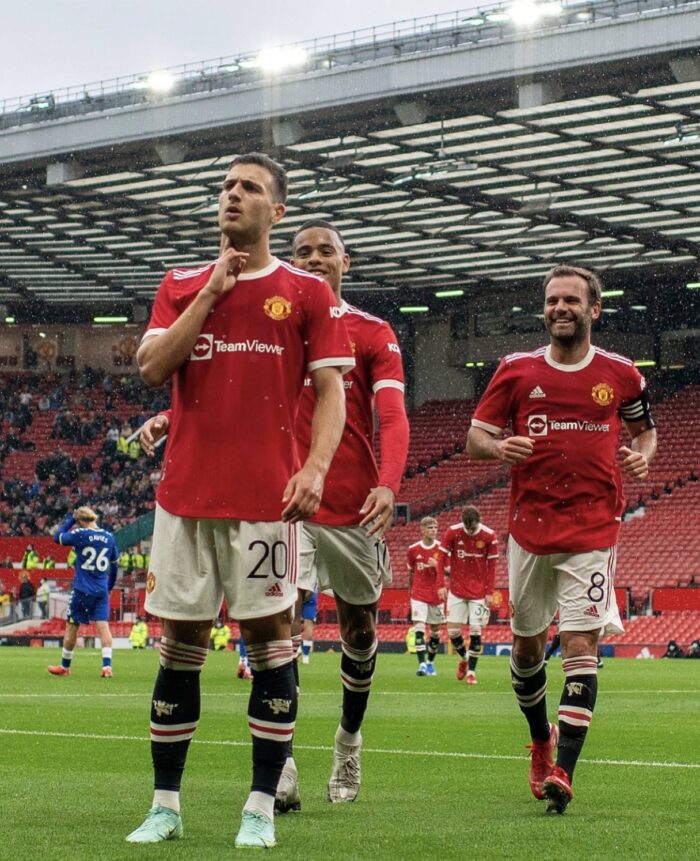
Dalot impressed at his new club and was used fairly evenly at both full-back positions, playing 17 times at right-back that season and 12 times at left-back. While a large portion of his playing time came in the Europa League, Dalot was given significantly more chances than the season prior and made 34 appearances in total for the 2020/21 season. Dalot’s strong loan spell was rewarded with a call-up to Portuguese National Team for Euro 2020, replacing the injured João Cancelo. Dalot made two appearances in the tournament, making his full senior international debut.
After the Euros, Diogo Dalot returned to Manchester earlier this summer, following his time away in Italy. Early rumours suggested he was likely to be on his way out of Old Trafford, either on loan or a permanent deal, with both a return to AC Milan and Carlo Ancelotti’s Real Madrid reported as possible destinations. Additionally, Manchester United’s strong links to Atletico Madrid and England right-back, Kieran Trippier, seemed to cement Dalot’s imminent exit. However, in a turn of events, these links seemed to have cooled, with United reluctant to meet Atletico’s asking price, while also struggling to offload unwanted players in order to fund new arrivals.
Dalot has shone in preseason, with strong performances against Brentford and Everton, and even a remarkable headed goal in the latter game. Reports are now suggesting that United are happy to keep Dalot for the new season and believe he could prove to be an important team member throughout the campaign. Left-back Alex Telles’ recent injury, as well as Brandon Williams’ possible departure on loan, has pushed Dalot up the pecking order and increased his role in the squad. His ability to play in both full-back positions could now serve him well. He is now second-choice at both right-back and left-back and, if either Aaron Wan-Bissaka or Luke Shaw face injury or suspension, Dalot will be the first in line to come into the team.
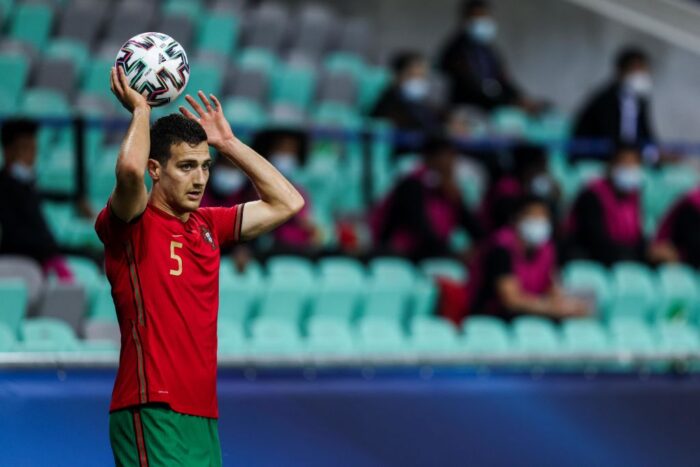
On the right of defence, Dalot offers a different style of player to Wan-Bissaka. Dalot is not as strong defensively, and can’t compete with Wan-Bissaka’s elite level one-on-one tackling. However, Dalot’s surging runs forward and dangerous, accurate crosses (now even more useful with aerial threat Edinson Cavani in the team) can offer a strong attacking threat, an area where Wan-Bissaka struggles. Therefore, in matches against weaker teams, where United have more possession of the ball and are facing less attacks from the opposition, Dalot may prove to be a more attacking and adventurous option at right-back.
There is also a chance that Dalot could be utilised at right-wing-back. As an attacking full-back, and occasional right-winger, Dalot suits the more advanced wing-back position well. If Solskjaer chooses to deploy a back-five against teams such as Manchester City, Liverpool or Chelsea, Dalot could be used as the wing-back in the system. Rumours this summer suggested that Solskjaer wanted to try Wan-Bissaka at the right of three centre-backs in a back-five. This choice would take advantage of Wan-Bissaka’s defensive strength, pace, and tackling prowess, while not requiring him to venture forward and support the attack.
Additionally, Solskjaer has already pushed Luke Shaw back to the left-side of the three centre-backs multiple times when adopting a back-five during his tenure as United manager. In this way, if Solskjaer opts to use either of the two first-choice full-backs at centre-back, when playing with five-at-the-back, Dalot could see an opportunity to play at either vacant wing-back position.
Still only 22, Diogo Dalot now faces his best chance at getting game time for Manchester United under Solskjaer. His versatility may prove to be a valuable asset, as he now finds himself second-choice in both full-back positions. Players will certainly be rotated during cup games and throughout the duration of the season, providing important game time, and there is always the chance of injury or suspension to either Shaw or Wan-Bissaka, and Dalot may finally be able to make an impact on the Manchester United first-team.
Written by George Lavin
Discover more from MUFCLatest.com
Subscribe to get the latest posts sent to your email.

